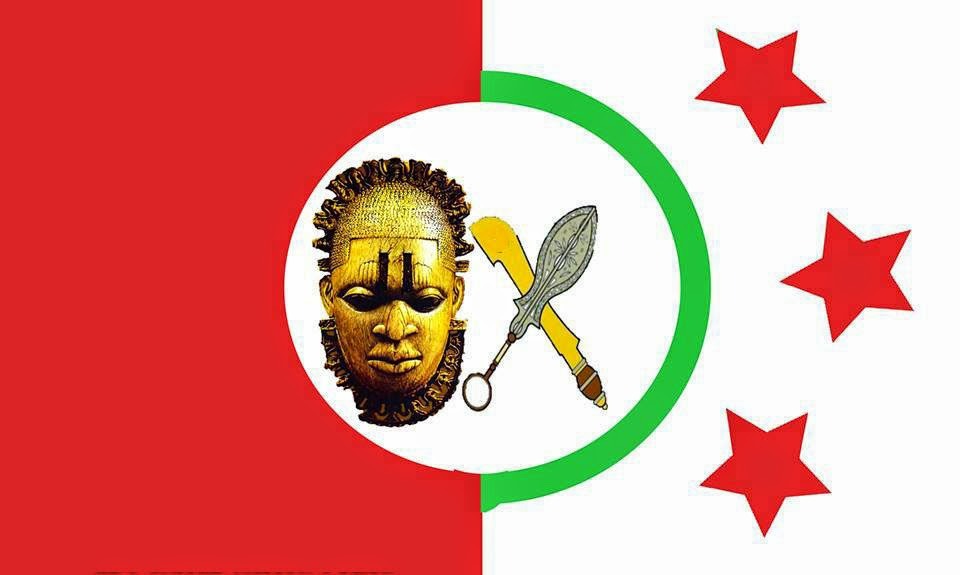culled from Vanguard on August 30, 2024. https://www.vanguardngr.com/2024/08/africa-is-out-of-africa/
On a personal note, I have long settled on the fact that the word Africa, etymologically, owes its clarifying significance in popular and contemporary usage to the Romans, derived from the Latin word “Afri” (singular “Afer”), which referred to the inhabitants of Carthage, a region near present-day Tunisia. The suffix “-ica” was added, forming “Africa,” meaning “land of the Afri” or “land of the people of the Afri.” The Romans used this term to describe the northern part of the continent, occupied by the Amazigh or Imazighen, who are often called “Berbers.”
Many other etymological attributions have been made to:
– Phoenician Origin: Suggesting that the name was derived from the Phoenician word “afar,” meaning “dust” or “earth,” which could reference the continent’s landscape.
– Greek Origin: Some suggest a connection to the Greek word “aphrike,” meaning “without cold,” referring to the continent’s warm climate. Another Greek theory links the name to the word “phrike,” meaning “horror,” which could be descriptive of the continent’s exotic and unfamiliar nature to the Greeks.
– Berber Origin: Some theories also propose that the name comes from the Berber word “ifri” or “ifrane,” meaning “cave,” which could have referred to cave dwellers in the region.
While there are many more suggestions as to the origin of the word “Africa,” I would attempt to provide some cover for my assertive stance that the word Africa owes its clarifying significance, popularization, and standardization to Rome (the Roman Empire).
Clearly, the question of who should earn credit for naming “Africa” is complex due to the layered history of the term’s use and evolution. The term “Africa” did not emerge from a single individual but rather from a confluence of linguistic, cultural, and political developments. On this, I highlight some key players and cultures that contributed to the term’s evolution:
– Roman Usage and Expansion: The Romans initially used the term “Africa” specifically to refer to the province of Africa Proconsularis, which was centered around the city of Carthage in modern-day Tunisia. As the Roman Empire expanded, the term “Africa” began to refer to a broader region, eventually encompassing the entire northern part of the continent.
– Scipio Africanus: Although not the originator of the term, Publius Cornelius Scipio Africanus, the Roman general who defeated Hannibal in the Second Punic War, is closely associated with the name. His victory in North Africa and the subsequent Roman dominance in the region helped solidify the use of “Africa” as a name for the territory.
– Influence of Medieval Cartography and European Exploration: During the Middle Ages, the term “Africa” became more widely used in Europe, primarily through the influence of Roman maps and texts. By the time of European exploration in the 15th and 16th centuries, “Africa” was already established as the name for the entire continent. European explorers and mapmakers, influenced by classical texts, began using “Africa” to refer to the entire landmass south of the Mediterranean Sea.
– Cultural and Linguistic Impact: The spread of the term “Africa” through European languages, aided by Roman maps and texts, solidified its use as the name for the continent. The name was then adopted into various languages across the world, often with slight variations in pronunciation but retaining the same basic form. The word “Africa” thus became a global term, recognized across cultures and languages.
– Africa in Ancient and Classical Texts: The use of the term “Africa” in ancient texts provides additional insights into its evolving meaning. In ancient Greek and Roman literature, references to “Africa” were often limited to the region near Carthage. For example, the Greek historian Herodotus (5th century BCE) mentioned “Libya” to describe the northern part of the continent, while “Africa” was not a common term in his work. The term gained prominence primarily through Roman sources.
– Virgil, the Roman poet, famously used “Africa” in his epic, The Aeneid, referring to the land where Dido, the queen of Carthage, ruled. As Roman authors like Pliny the Elder and Sallust wrote more about the continent, the name “Africa” became increasingly associated with the lands beyond Carthage, eventually extending to describe the entire continent.
– Influence of Arabic and Islamic Scholarship: During the Islamic Golden Age, when scholars in the Arab world made significant contributions to geography and cartography, the name “Africa” was used in various forms. The Arabic word “Ifrīqīyā” was used by scholars such as Al-Idrisi and Ibn Khaldun to describe the region corresponding to modern-day Tunisia and its surroundings. This term likely derived from the earlier Latin “Africa” and was adapted into Arabic as the Islamic Empire expanded into North Africa. These scholars made extensive maps and descriptions of the African continent, which influenced both the Arab world and later European explorers. The name “Ifrīqīyā” thus served as a bridge between the classical Roman usage of “Africa” and its modern interpretation.
– Colonialism and the Codification of “Africa”: The term “Africa” was further solidified during the colonial period, beginning in the late 15th century with European exploration and subsequent colonization. European powers, such as Portugal, Spain, France, and Britain, used the name “Africa” to describe the entire continent, largely ignoring the diverse cultures, languages, and political entities that existed there.
– Colonial cartographers and administrators often imposed the term “Africa” as a blanket label, which contributed to the homogenization of the continent’s identity in European minds. The Berlin Conference of 1884-1885, which formalized the partition of Africa among European powers, further entrenched the use of “Africa” as a geopolitical term.
– Africa in the Post-Colonial Era: In the 20th century, as African nations gained independence, the name “Africa” was reclaimed and redefined by the people of the continent. Leaders of the Pan-African movement, such as Kwame Nkrumah and Haile Selassie, embraced “Africa” as a unifying identity in the struggle against colonialism and in the pursuit of continental unity and development. Today, “Africa” represents not only a geographical region but also a collective identity that acknowledges the continent’s complex history, its diverse cultures, and its ongoing efforts towards unity and self-determination. The term carries with it the weight of both historical colonialism and modern aspirations for progress and solidarity.
In sum, the truth is we may never know exactly where the word Africa originated; however, it is important to acknowledge that this name likely evolved from earlier local names used by the Carthaginians, Berbers, or other indigenous peoples, which were then adapted by the Romans. Thus, while the Romans spread and standardized the term, its roots may lie in the indigenous languages of North Africa. In that context, the root of the word Africa is undoubtedly, in my view, “out of Africa” – a name that was conveniently spun to fit the liking of Roman sojourners in their bid to standardize the artifice of commerce and their interpretation of regional conquests.
——-------------
**Philip Obazee retired as a managing director from a global asset management company – Macquarie Asset Management based in Philadelphia, USA, and currently he is the founder and chief executive officer of Polymetrics Americas Research, LLC.

















